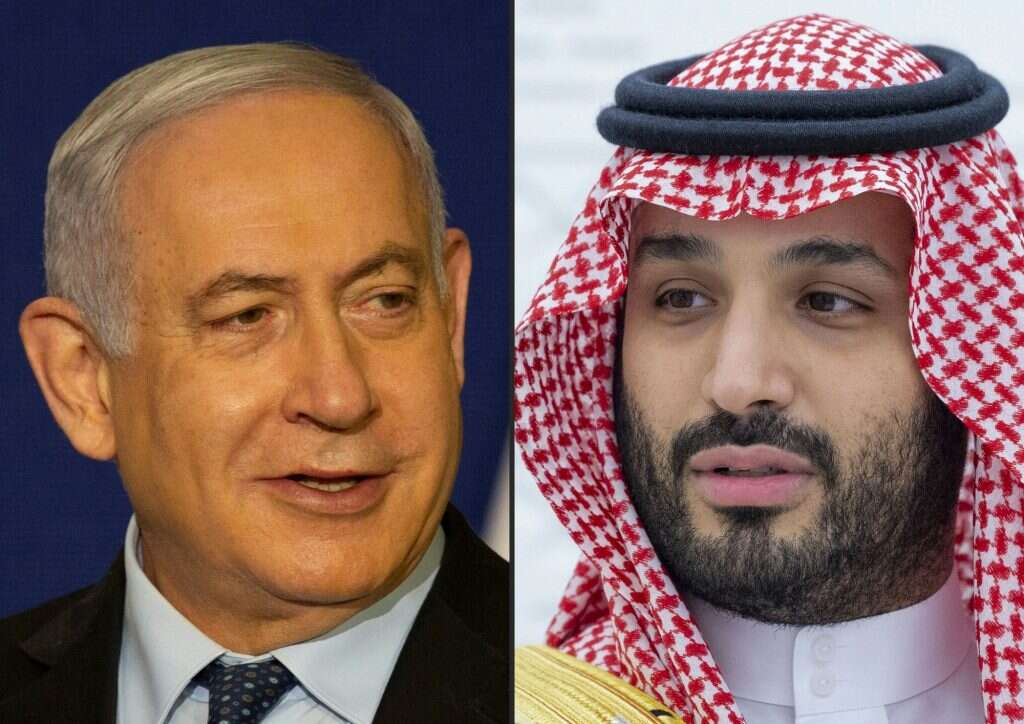Many are puzzled by Saudi Arabia's reluctance to board the peace train with Israel, despite the clear fact that the Saudis had already given the go-ahead to the UAE, Bahrain and Sudan to advance their own relationships with Israel. Saudi Arabia has also opened its airspace to Israeli aviation, which in itself is a step towards normalization. Despite all this, it is also clear that the meeting between the Prime Minister of Israel and Crown Prince Muhammad Ben-Salman on the night of November 22 did not bring about the results that Netanyahu expected. The proof: The official denial by Saudi Arabia that any such meeting even took place. The global publicity that the meeting received embarrassed the Saudis – and it does not work in Israel's favor.
The question of why Saudi Arabia is hesitant is intensified when one considers the upcoming regime change in the US, and the effort by other countries – the UAE, Bahrain, Sudan and Israel – to create a political reality that includes a sort of anti-Iranian regional alliance. So why is Saudi Arabia still undecided?

There are several answers to this question. The most important of these is Saudi Arabia's fear of Iran and its reaction to rapprochement with Israel. Riyadh remembers well that night, in mid-September 2019, when Iran (through its allies in Yemen and Iraq) attacked important Saudi oil facilities and shut them down for a long stretch. The Saudis also remember that no one – neither the Americans nor the Israelis – responded to this attack, and based on these facts, they concluded that they were alone in the battle against Iran and that the balance of power was not in their favor.
A second reason is that the Saudis fear the Biden administration's attitude: The administration will try to get closer to the Iranians by walking back sanctions and returning to the nuclear deal, which will revive the Iranian economy and allow Iran to reignite the Houthi fire in Yemen, against Saudi Arabia. In addition, the Biden administration will once again begin examining Saudi Arabia through the magnifying glass of human rights, and will raise embarrassing questions about the Khashoggi affair, executions in Saudi Arabia and the rights of foreign workers in the kingdom. American support for Saudi Arabia will be restricted and limited, and it is highly doubtful that Biden and his government will allow Israel to warm its relations with a country towards which they have such reservations. Finally, The Biden administration will bring the Palestinian issue back to the forefront, and will treat any Arab progress with Israel negatively if it does not take the Palestinians into account. Indeed, there are reports of King Salman's position that a solution to the Palestinian issue, according to the outline of the Saudi-Arab peace plan (2002), a condition for any progress towards peace between Israel and Saudi Arabia.
The third reason for Saudi hesitation is the internal situation in the kingdom. Israel and the west see the kingdom and its conduct mainly through the words and actions of Prince Regent Muhammad bin Salman, and especially through the reforms he has enacted. Reforms like cuts in the power and budget afforded to the "moral police"; Permission for women to drive a vehicle, appear in public without an escorting man and even without a head covering; A 2030 plan devised and designed to march Saudi Arabia into an oil-free future; Establishment of the "City of the Future" speech. The problem with this view is that it ignores a number of other elements that play an important role in Saudi Arabia.
First, is the status of Muhammad bin Salman, whom we mistakenly see as the "the boss" in Saudi Arabia. Well, he isn't. Since being appointed regent in June 2017 there has been much resentment among the royal family over the appointment itself and his conduct. When he was appointed to the position he was 32 years old, very young in comparison with the sons of previous kings, the brothers of King Salman, most of whom are much older than him. In a traditional society like Saudi Arabia, age is a major factor in considering whether to appoint a person to an important public office, and therefore appointing a young person while bypassing adults is considered illegitimate.
Another drawback is that Muhammad bin Salman had no experience in managing organizations and policies when he was appointed heir, compared to the previous emirs who were ministers, ambassadors, commanders in the army or executives of massive companies, and therefore much better suited to run a country and policy.
They spoke against him day and night, and he knew very well who was saying what against him. In November 2017, six months after being appointed heir apparent, he arrested dozens of his cousins, emirs and members of the royal family, at the Ritz Carlton Riyadh Hotel, humiliated them and extorted billions of dollars from them, and they did not forget or forgive him for this humiliation. Two of them were also killed.
Many in the royal family blame Muhammad bin Salman for Saudi Arabia's over-involvement in Yemen and the huge blood price the kingdom is paying for this involvement. Many also accuse him of the fiasco of the "disappearance" of the exiled Saudi journalist Jamal Khashoggi in Istanbul in October 2018 and of the serious consequences of this affair on Saudi Arabia's image and its foreign relations with the US and Turkey.
The reforms in the status of women introduced by bin Salman are also not to the liking of many in Saudi Arabia, although a majority of young people support them. That is why I say clearly: Muhammad bin Salman as the next King of Saudi Arabia is not a sure thing. What are the odds? I do not know, because the royal family in Saudi Arabia has never faced such a situation. Official bodies in the kingdom refer to Muhammad bin Salman as the regent, i.e. the next king, but there are also signs that the Saudis might go in another direction.
Another reason for Saudi hesitation is a cultural one. The Bedouin heritage of Saudi Arabia includes a rule that appears in a Hadith (the Islamic oral tradition): "al-Ajalah min al-Shaytan wal-Ta'anni min al-Rahman" – "Recklessness is an act of Satan and moderation is from the Merciful One (Allah)." Nothing ever happens in the desert, therefore nothing is urgent and it is better to wait and see what happens, rather than take a risk and take action that could be dangerous. It is a cultural trait deeply rooted in the way of thinking and behavior in traditional societies in the Middle East. And Westerners – students of the opposite culture, the "instant" culture, who want everything "now" – do not understand this culture and its implications for individuals and groups in our region.
Saudi Arabia appears to be reluctant to advance its relations with Israel due to internal, external and cultural reasons. Only a strong reason can change the nature of this conduct, and I do not see such a reason at present.












